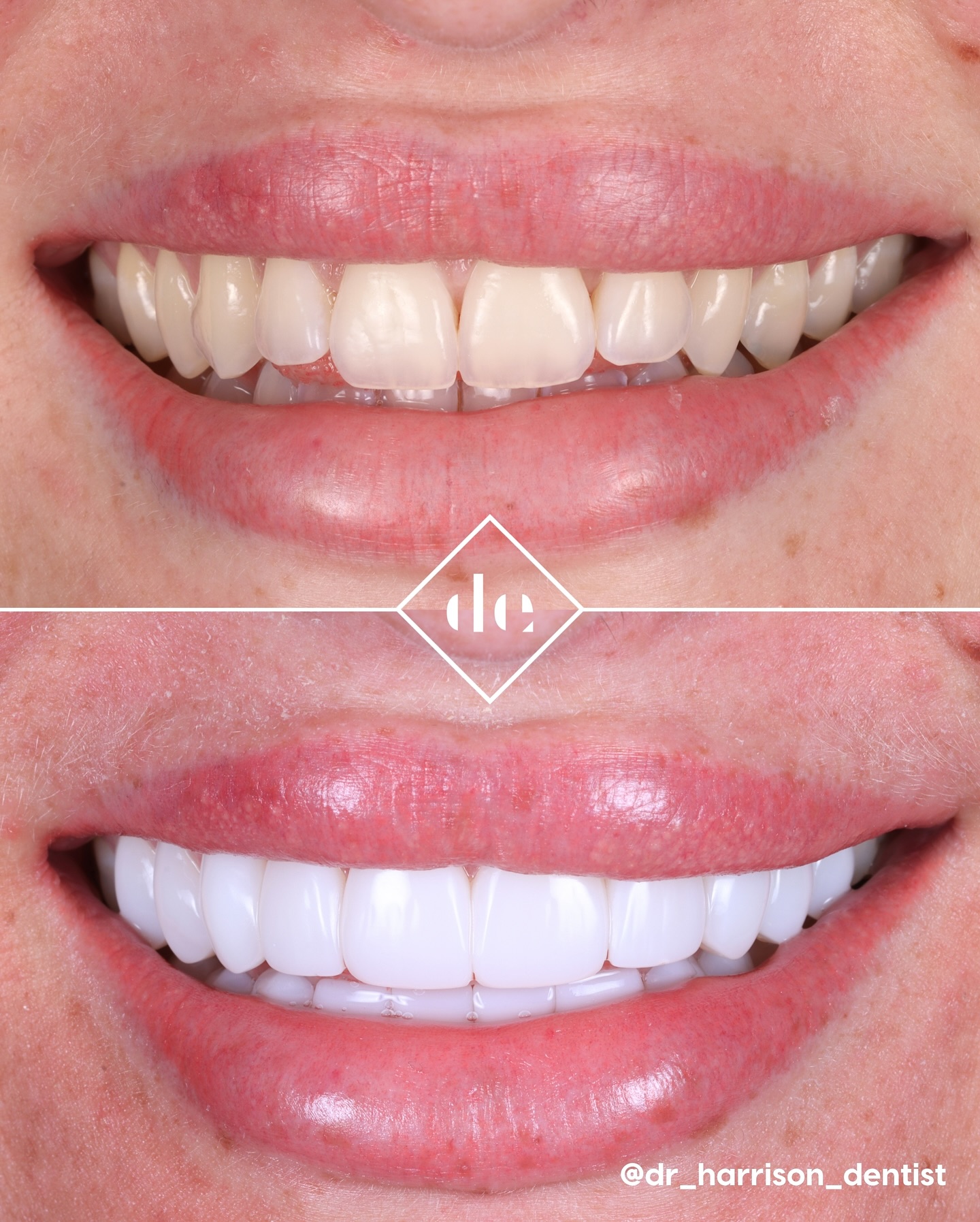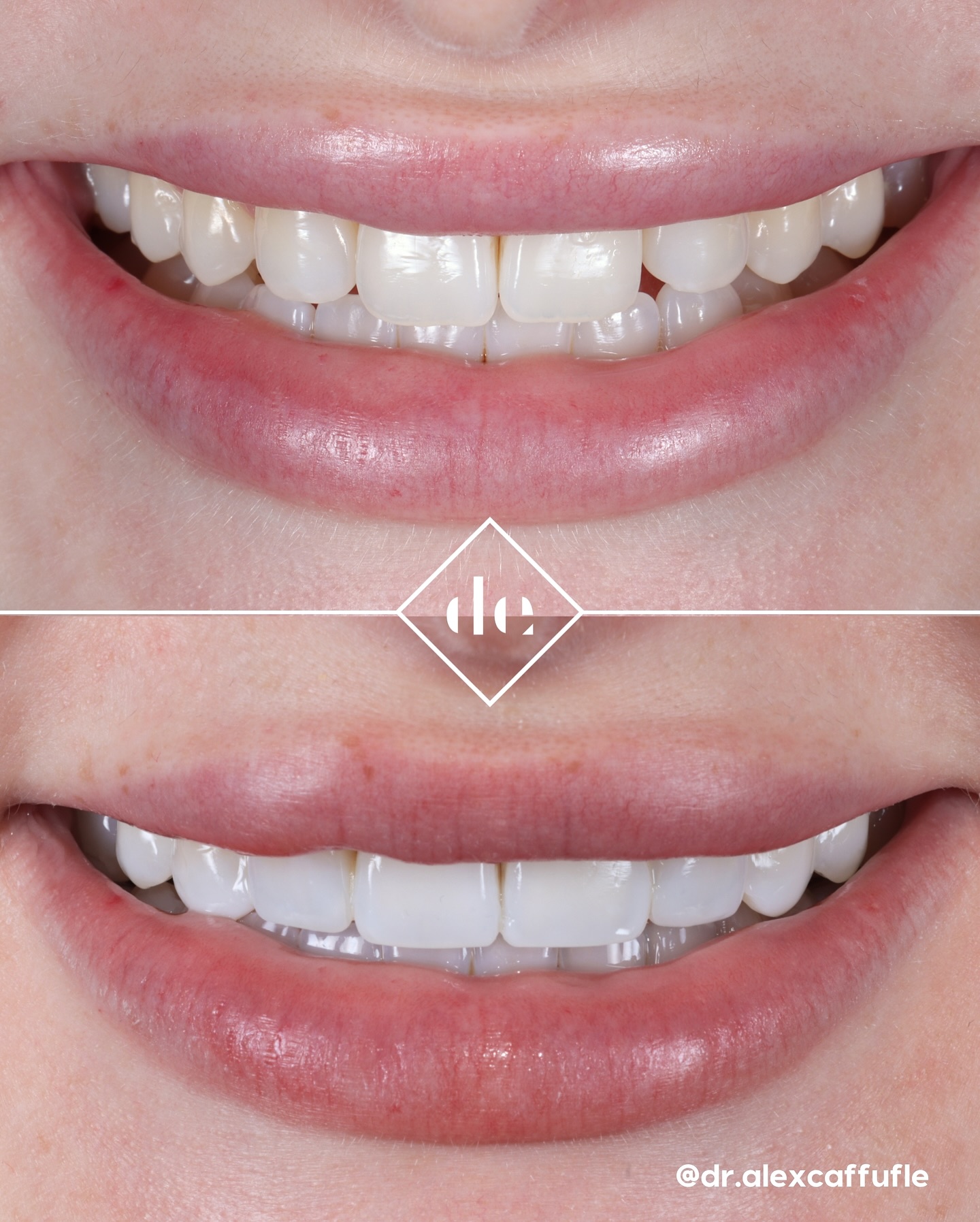Dental Implants vs Dentures: What You Need To Know


Whether you’re looking into tooth replacement treatment independently, or have been recommended treatments by your dentist, it can be intimidating to pick the right course of treatment for you. Of course, we would always advise that you take the advice of your dentist, but it’s also important for you, as a patient, to understand the different avenues available to you and what kind of treatment is going to be right for you. In this post, we’ll examine two of the most popular tooth replacement treatments available - dental implants and dentures.
Why Might You Need Tooth Replacement Treatments?
Tooth replacements are very common, particularly as we get older. Regular wear and tear on the teeth can cause a variety of issues with your dental health, resulting in tooth loss. Over time, any areas where your regular dental care is missing can also be exacerbated, resulting in small issues growing into bigger ones. For this reason, you should always keep up with your oral hygiene, brushing twice a day and stay up to date with regular dental checkups, every six months or as directed by your dentist.
You could be a good candidate for dental implants or for dentures if you have missing teeth or teeth which need to be replaced. It is incredibly important to perform tooth extraction on an infected tooth or tooth that is breaking down and substitute it with a dental implant or another tooth replacement, as it can cause patients a significant amount of pain, as well as risking infection and inflammation of the other tissues in the mouth. Teeth may also be lost through tooth crowding or wisdom teeth that have not arrived properly, but these teeth normally do not need to be replaced as the other teeth will move to fill the space.
However, it's important to have a tooth replacement treatment done as soon as possible if you have missing teeth or teeth that need to be replaced. Missing teeth can lead to many other dental problems and general health problems, as well as making many people feel self-conscious about their smiles. For instance, you are more likely to get a cut or infection in the region of gum that has been exposed by the missing tooth, and you are therefore more likely to develop tartar build-up as it becomes difficult to properly brush your teeth around the space. As a result of missing teeth, you may also experience changes to your speech, find it difficult to consume certain types of food, and the teeth on either side of the gap can also become misaligned over time, which may require other treatments of their own.
There are a wide variety of different options available to replace missing teeth to suit the dental health needs of many different patients. These include dental bridges, dental crowns, dental implants and removable dentures.
What are Dental Implants and Dentures?
Dental implants work to fill gaps in your teeth using small, medical-grade titanium screws, which replace the natural tooth. Over time, this screw goes through a process called osseointegration or bone grafts, which is when the screw actually fuses with the bones of the jaw, making them much more stable and long-lasting. Then, a dental crown is placed on top and fixed to the implant to fill the gap between your teeth and prevent any misalignment.
Dentures or false teeth, on the other hand, are a small frame made of plastic and metal, which are expertly fitted to your mouth to replace your missing teeth. Dentures are usually supported by the other teeth in the mouth and by the structure of the jaw itself. In the past, most dentures needed to be removed at night and denture wearers were often stuck with ill-fitting, loose dentures that were prone to slipping out. Today, however, dentures can be bonded and fitted far more securely than in the past, and denture care has become more advanced too.
Dental implants and dentures can both be made to replace a single tooth or multiple teeth, and both fit neatly alongside your real tooth, so to the untrained eye the difference is almost imperceptible, no matter how many teeth you need to be replaced!
How Long Does Dental Implant Treatment Take, Compared to Dentures?
One of the disadvantages of dental implants is that the treatment process is quite long, and can take from around six months to over a year, depending on your specific needs.
Generally, there are a few different steps required for dental implant treatment:
- Dental Exam and Consultation: This oral examination will include taking dental x-rays and 3D photographs, which will then be converted into accurate teeth and jaw models by our team so that they and you can better picture the procedure at hand. In order to ensure that the procedure is appropriate for you and that you are eligible for treatment with implants, we will also talk about your medical background.
- Your Treatment Plan: You will then be introduced to your personalised care plan that our dentistry specialists have developed to help treat the dental problems that you face. This will take all of the previously collected data into account, leading to a process that gives you impressive outcomes while still making you feel secure, happy and confident.
- Fitting the Implants: Your dental implants will be fitted in one appointment along with temporary dental crowns, so you can leave your first surgical appointment with a beautiful new smile. Then, we allow around six months for the implants themselves to settle in and to fuse with the jawbone, which is what helps dental implants last so well.
- Final Fitting: You may need a few different check-ups in between getting the implants fitted and your final fitting. During the final fitting, you’ll receive your custom dental crowns that have been made to perfectly fit your teeth, and be set for many years to come with your brand new smile!
This process can take a minimum of around nine months from start to finish, and often takes over a year. However, once the treatment is completed, you can expect your dental implants to last you for a very long time - most patients find that they last from 15 years without any need for maintenance outside of regular brushing and check-ups.
On the other hand, dentures tend to have a much quicker initial treatment time, and can be fitted within a few weeks. However, you will need to get them refitted every few years to ensure a tight and accurate fit, as your teeth and mouth naturally move and change over time.
The Longevity of Your New Teeth
When it comes to comparing dentures and dental implants, one of the major advantages of dental implants is their longevity. The long treatment time and high cost of dental implants can be off-putting for some people, but the result is a long-lasting treatment that you won’t have to worry about for at least 10-15 years after your treatment. As dental implants actually integrate with the jawbone, they adapt to the natural changes in your mouth over time exactly as your other teeth would.
Dentures, on the other hand, are static, which means that they will have to be replaced every few years to accommodate for the natural changes in our teeth and mouths. It is recommended to get new dentures every 5-7 years, or as soon as they become loose, don’t fit as well as they should or are otherwise uncomfortable.
How Much Do They Cost?
One of the major obstacles for the majority of people regarding dental implant treatment is the price of treatment, which can be very high. Dental implants are a highly specialised treatment and require multiple trips to both your dentist and a specialised implantologist, as well as the creation of high-quality, natural-looking individual dental crowns, assorted scans of your teeth and long-term monitoring of your dental health.
However, the payoff for this is that you get a dental solution that is incredibly natural-looking, low maintenance, fits your mouth perfectly and lasts for a very long time. Once your dental implants are fitted, you simply need to treat them as you would your normal teeth, without any extra maintenance required!
Dentures are a much more affordable treatment option for many people, which is one of the reasons they are so popular. Dentures need to be replaced every few years as the shape of your mouth and position of your teeth changes, however, the cost for these is still relatively low, compared to the significant upfront cost of dental implants.
Denture Care vs. Dental Implant Care
In the long-term, dental implants are significantly easier to look after than dentures, as they only ever require the same amount of care as your natural teeth - that means brushing twice a day and regular checkups at the dentist.
Denture care is a little bit more complex, and can vary between patients, denture types, dentists and specific treatment methods. When you get your dentures, your dentist will be able to tell you how to look after them properly and how often to remove them to get the best possible wear from your dentures.
If you’re unsure which course of treatment is right for you, please get in touch with us at Dental Excellence, and our experienced team of experts will be able to help you find the right treatment for you!
Whether you’re looking into tooth replacement treatment independently, or have been recommended treatments by your dentist, it can be intimidating to pick the right course of treatment for you. Of course, we would always advise that you take the advice of your dentist, but it’s also important for you, as a patient, to understand the different avenues available to you and what kind of treatment is going to be right for you. In this post, we’ll examine two of the most popular tooth replacement treatments available - dental implants and dentures.
Why Might You Need Tooth Replacement Treatments?
Tooth replacements are very common, particularly as we get older. Regular wear and tear on the teeth can cause a variety of issues with your dental health, resulting in tooth loss. Over time, any areas where your regular dental care is missing can also be exacerbated, resulting in small issues growing into bigger ones. For this reason, you should always keep up with your oral hygiene, brushing twice a day and stay up to date with regular dental checkups, every six months or as directed by your dentist.
You could be a good candidate for dental implants or for dentures if you have missing teeth or teeth which need to be replaced. It is incredibly important to perform tooth extraction on an infected tooth or tooth that is breaking down and substitute it with a dental implant or another tooth replacement, as it can cause patients a significant amount of pain, as well as risking infection and inflammation of the other tissues in the mouth. Teeth may also be lost through tooth crowding or wisdom teeth that have not arrived properly, but these teeth normally do not need to be replaced as the other teeth will move to fill the space.
However, it's important to have a tooth replacement treatment done as soon as possible if you have missing teeth or teeth that need to be replaced. Missing teeth can lead to many other dental problems and general health problems, as well as making many people feel self-conscious about their smiles. For instance, you are more likely to get a cut or infection in the region of gum that has been exposed by the missing tooth, and you are therefore more likely to develop tartar build-up as it becomes difficult to properly brush your teeth around the space. As a result of missing teeth, you may also experience changes to your speech, find it difficult to consume certain types of food, and the teeth on either side of the gap can also become misaligned over time, which may require other treatments of their own.
There are a wide variety of different options available to replace missing teeth to suit the dental health needs of many different patients. These include dental bridges, dental crowns, dental implants and removable dentures.
What are Dental Implants and Dentures?
Dental implants work to fill gaps in your teeth using small, medical-grade titanium screws, which replace the natural tooth. Over time, this screw goes through a process called osseointegration or bone grafts, which is when the screw actually fuses with the bones of the jaw, making them much more stable and long-lasting. Then, a dental crown is placed on top and fixed to the implant to fill the gap between your teeth and prevent any misalignment.
Dentures or false teeth, on the other hand, are a small frame made of plastic and metal, which are expertly fitted to your mouth to replace your missing teeth. Dentures are usually supported by the other teeth in the mouth and by the structure of the jaw itself. In the past, most dentures needed to be removed at night and denture wearers were often stuck with ill-fitting, loose dentures that were prone to slipping out. Today, however, dentures can be bonded and fitted far more securely than in the past, and denture care has become more advanced too.
Dental implants and dentures can both be made to replace a single tooth or multiple teeth, and both fit neatly alongside your real tooth, so to the untrained eye the difference is almost imperceptible, no matter how many teeth you need to be replaced!
How Long Does Dental Implant Treatment Take, Compared to Dentures?
One of the disadvantages of dental implants is that the treatment process is quite long, and can take from around six months to over a year, depending on your specific needs.
Generally, there are a few different steps required for dental implant treatment:
- Dental Exam and Consultation: This oral examination will include taking dental x-rays and 3D photographs, which will then be converted into accurate teeth and jaw models by our team so that they and you can better picture the procedure at hand. In order to ensure that the procedure is appropriate for you and that you are eligible for treatment with implants, we will also talk about your medical background.
- Your Treatment Plan: You will then be introduced to your personalised care plan that our dentistry specialists have developed to help treat the dental problems that you face. This will take all of the previously collected data into account, leading to a process that gives you impressive outcomes while still making you feel secure, happy and confident.
- Fitting the Implants: Your dental implants will be fitted in one appointment along with temporary dental crowns, so you can leave your first surgical appointment with a beautiful new smile. Then, we allow around six months for the implants themselves to settle in and to fuse with the jawbone, which is what helps dental implants last so well.
- Final Fitting: You may need a few different check-ups in between getting the implants fitted and your final fitting. During the final fitting, you’ll receive your custom dental crowns that have been made to perfectly fit your teeth, and be set for many years to come with your brand new smile!
This process can take a minimum of around nine months from start to finish, and often takes over a year. However, once the treatment is completed, you can expect your dental implants to last you for a very long time - most patients find that they last from 15 years without any need for maintenance outside of regular brushing and check-ups.
On the other hand, dentures tend to have a much quicker initial treatment time, and can be fitted within a few weeks. However, you will need to get them refitted every few years to ensure a tight and accurate fit, as your teeth and mouth naturally move and change over time.
The Longevity of Your New Teeth
When it comes to comparing dentures and dental implants, one of the major advantages of dental implants is their longevity. The long treatment time and high cost of dental implants can be off-putting for some people, but the result is a long-lasting treatment that you won’t have to worry about for at least 10-15 years after your treatment. As dental implants actually integrate with the jawbone, they adapt to the natural changes in your mouth over time exactly as your other teeth would.
Dentures, on the other hand, are static, which means that they will have to be replaced every few years to accommodate for the natural changes in our teeth and mouths. It is recommended to get new dentures every 5-7 years, or as soon as they become loose, don’t fit as well as they should or are otherwise uncomfortable.
How Much Do They Cost?
One of the major obstacles for the majority of people regarding dental implant treatment is the price of treatment, which can be very high. Dental implants are a highly specialised treatment and require multiple trips to both your dentist and a specialised implantologist, as well as the creation of high-quality, natural-looking individual dental crowns, assorted scans of your teeth and long-term monitoring of your dental health.
However, the payoff for this is that you get a dental solution that is incredibly natural-looking, low maintenance, fits your mouth perfectly and lasts for a very long time. Once your dental implants are fitted, you simply need to treat them as you would your normal teeth, without any extra maintenance required!
Dentures are a much more affordable treatment option for many people, which is one of the reasons they are so popular. Dentures need to be replaced every few years as the shape of your mouth and position of your teeth changes, however, the cost for these is still relatively low, compared to the significant upfront cost of dental implants.
Denture Care vs. Dental Implant Care
In the long-term, dental implants are significantly easier to look after than dentures, as they only ever require the same amount of care as your natural teeth - that means brushing twice a day and regular checkups at the dentist.
Denture care is a little bit more complex, and can vary between patients, denture types, dentists and specific treatment methods. When you get your dentures, your dentist will be able to tell you how to look after them properly and how often to remove them to get the best possible wear from your dentures.
If you’re unsure which course of treatment is right for you, please get in touch with us at Dental Excellence, and our experienced team of experts will be able to help you find the right treatment for you!
Your new smile is waiting...
Book today.









